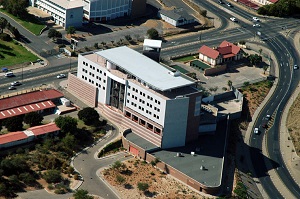
Businesses continue to borrow less while household credit soars

The corporate sector remained reluctant to take on more credit as uncertainties over the economic outlook remain, while households continue to increase their credit uptake.
According to data from the Bank of Namibia, credit growth in May mainly stemmed from households which saw a growth in credit extension to 4% from the 3.9% seen in April. Corporates on the other hand continued to borrow at a slower pace, contracting for a fourth consecutive month declining to 1.2% from 2%, following the 0.8% contraction recorded in April.
However, May has seen the overall credit extended to the private sector moderate to 2.8% from 3.1% in April. According to Bank of Namibia, the decrease reflects a lower uptake of credit specifically by corporations in the wholesale and retail trade sector, as well as the energy and financial services sectors.
Simonis Storms Securities in a report said there is an inflection point in January 2021 in the debt stock levels for both corporate and households.
“Since the inflection point, households debt has been on an upward growth path, compared to a negative growth path for corporates. The inflection point is indicative that households are finding it more difficult to keep afloat given the current subdued environment. There are various arguments to be made for corporates; they might be pessimistic about future business opportunities and demand less credit as a result, corporate credit could be decreasing due to insolvencies or corporates are paying off debts at a faster pace due to lower interest rates,” Simonis Storm noted.
Meanwhile, PSG Wealth research analyst, Shelly Louw, said the prospects for Namibia’s third quarter have also dimmed, as the Namibian government implemented tighter nationwide COVID-19 containment measures.
“The nation is in the grips of a third wave of infections, which has seen Namibia setting a grim record of being the country with the highest infection rate globally over the past week (ending
5 July) according to data compiled by Bloomberg. This week, health authorities confirmed that the more contagious delta variant of the coronavirus is also present in the country,” Louw added.
“These latest developments will prompt us to revise our real GDP growth forecast for 2021 much lower from the current projection of 3.1%,” they concluded.












































